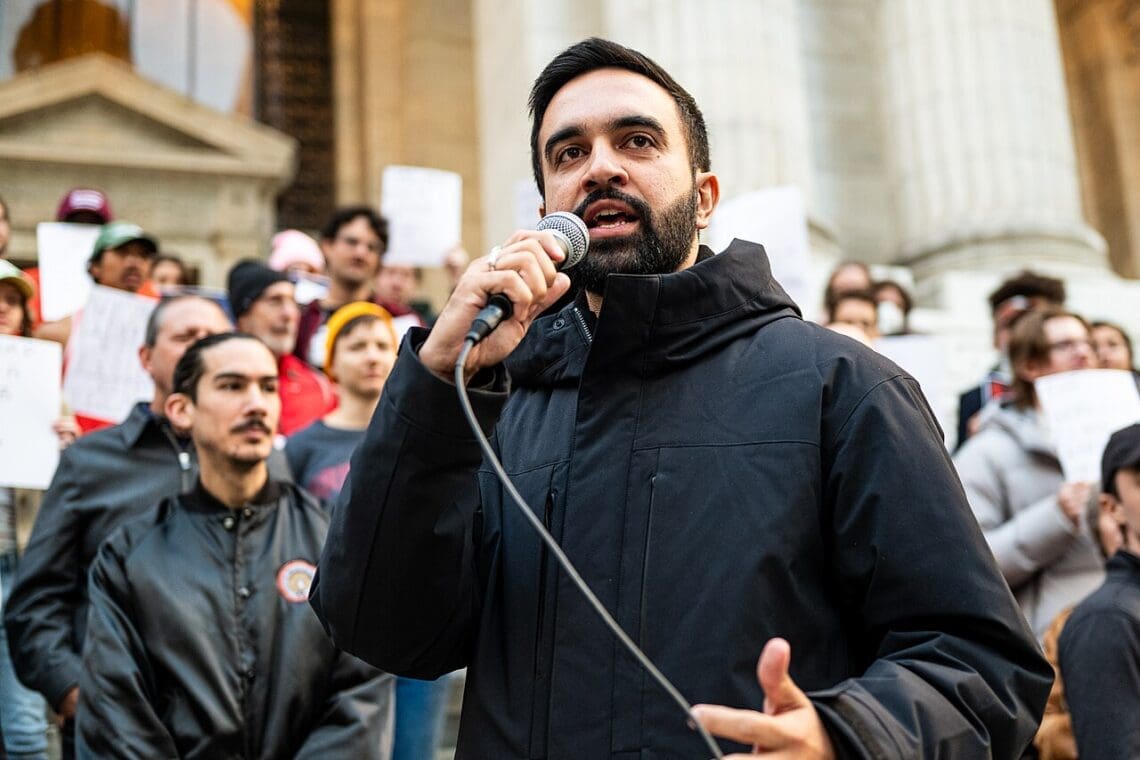
Zohran Mamdani’s shocking victory in the Democratic primary for mayor of New York City was not just a win over former New York Gov. Andrew Cuomo, but also over a set of Islamophobic smear tactics that have become all too familiar — and will continue to dog him in the run-up to November.
In the days before the primary, Mamdani was asked repeatedly about the slogan “globalize the intifada” on the assumption that because he has spoken out against Israel’s ongoing genocide in Gaza, he should have to answer for the protest cry.
He said that he had not used it himself, but he didn’t cede rhetorical territory to the political establishment by condemning the phrase.
Rather than take the bait, Mamdani made clear that many take “globalize the intifada” as a call to demand Palestinian equal rights, and that he doesn’t see it as his role to police speech.
Mamdani, who grew up in New York City and was just shy of 10 years old on September 11, 2001, may well have heard in the question the same ominous soundtrack that has haunted Arab and Muslim people in the United States for decades — and reached a fever pitch after the 9/11 attacks.
We have watched bad faith actors routinely demonize Arabic language and Islam day in and day out.
Lost all too often is any grasp of what the language actually means.
What Does “Intifada” Mean?
As an Arabic speaker, I can delve into the linguistics.
In Arabic, just as with its semitic sibling Hebrew, words are largely derived from three-letter roots.
These three-letter roots then act as building blocks for a wide range of associated words, and they are modified into 10 different awzan, or patterns, to create transitive, causative, passive, and reflexive forms of the root.
The root n-f-d is the verb “to shake” or “to shake off.”
Think of tapping the ashes off the end of a cigarette or shaking the dust out of an old rug.
One of the awzan of the root that converts it into its passive form is iNtiFaDa, which means “a shaking off.”
When this word is used to describe a singular historical occurrence, it means a popular uprising — in other words, a peoples’ shaking off of oppression.
This is not only the meaning of the word in a Palestinian context.
Arabic language texts discussing various uprisings across history, and on any continent, would use the word intifada because that is simply what the word means.
This exercise feels at once obligatory and unnecessary.
What is at issue here is not simply what the word means, but who gets to define its meaning and who gets to have their intentions and the validity of their concerns defined by others.
This fundamental dynamic, which is an all-too-common theme in a post-9/11 America where Islamophobia and anti-Palestinian racism shape so much of our discourse, is precisely what Mamdani was refusing to play along with — and good on him for it.

